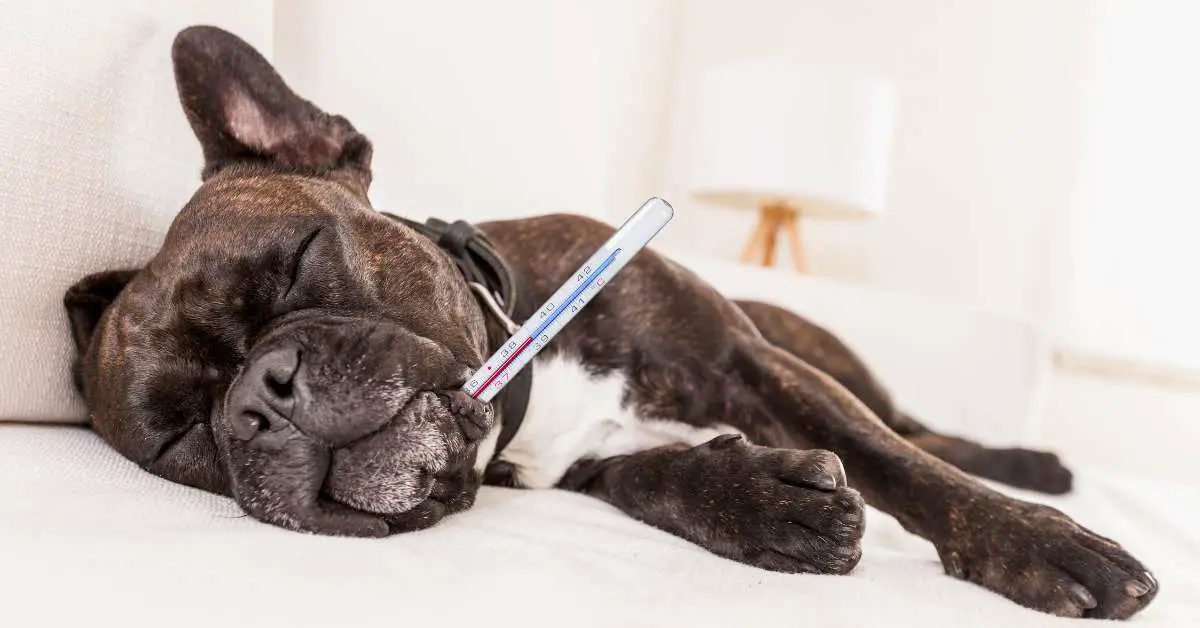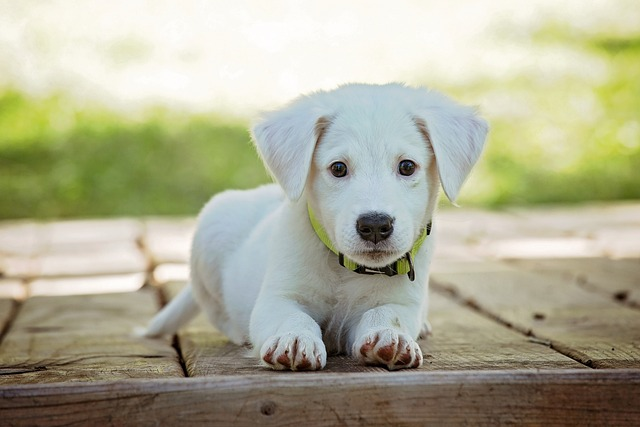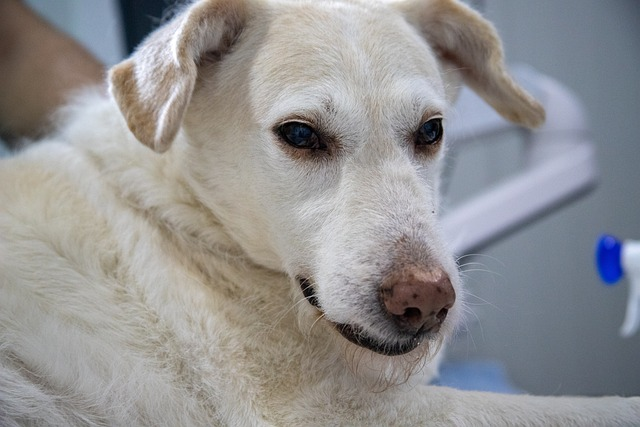Bordetella Dog Vaccine Guide: Protecting Your Pet’s Health

When it comes to your furry friend’s health, you’re always on the lookout for the best ways to shield them from harm, aren’t you? Imagine a dog park on a bright, sunny day, filled with the sounds of happy barking—yet, hidden within this scene of joy could be the invisible threat of kennel cough.
This ailment is all too common in the canine world and can transform a fun day out into a series of coughs and wheezes. That’s where the Bordetella vaccine steps in, acting as a guard against this illness. But you might wonder about the effectiveness of this vaccine and whether it’s a must-have for your dog’s health routine
In the upcoming sections, we’ll unpack the essentials of the Bordetella vaccine for dogs, its necessity, vaccination frequency, effectiveness, and the treatment of the condition it is designed to prevent.
Keep reading to learn how you can ensure your dog’s happiness and your peace of mind continue without a hitch. Understanding the Bordetella vaccine is more than just smart pet care—it’s a gesture of your love.

Key Takeaways
- The Bordetella vaccine is recommended for dogs with regular exposure to communal environments.
- Vaccination schedules for Bordetella may vary from annually to every six months, depending on a dog’s lifestyle and risk exposure, as well as individual health considerations advised by a vet.
- Bordetella is generally treatable in dogs, with most recovering fully; however, awareness and prompt treatment are key in preventing serious complications.
- Veterinary guidance is essential to determine the necessity and frequency of the Bordetella vaccine, particularly for dogs with a history of vaccine reactions or those who are immunocompromised, sick, or pregnant.
What Is Bordetella in Dogs?
According to Studies from ScienceDirect, Bordetella bronchiseptica is a bacterium that is the primary cause of what is commonly known as kennel cough.
While kennel cough can result from various pathogens, Bordetella bronchiseptica is a notable culprit due to its contagious nature and potential to cause infectious respiratory disease.
This bacterium leads to inflammation in the upper respiratory tract, resulting in a persistent cough and vulnerability to secondary infections.
Dogs that are often in the company of other dogs, such as in:
- Boarding kennels
- Doggy Daycare centers
- Training classes
- Dog shows
- Dog parks
are at a higher risk of contracting Bordetella. Many canine facilities require the Bordetella vaccine for this reason, underscoring its importance in communal settings.
What Is Kennel Cough?
You might be wondering, what exactly characterizes kennel cough?
According to the Merck Vet Manual, Kennel cough is characterized by a very contagious set of respiratory symptoms, with a pronounced, honking cough as the most noticeable sign.
Could there be other symptoms to watch for? Absolutely.
Dogs may also display symptoms of upper respiratory infection like a runny nose, sneezing, loss of appetite, lethargy, and a low fever. It’s important to differentiate these symptoms from those of other serious illnesses like canine distemper and influenza, and a veterinarian’s evaluation is crucial for proper diagnosis and treatment.
Untreated kennel cough can escalate to more severe conditions such as:
- Life-threatening bronchopneumonia in puppies
- Chronic bronchitis in older dogs or those with compromised immune systems
These potential health issues underline the necessity for preventive measures like vaccination, early detection, and prompt treatment.
How Do Dogs Get Bordetella?
The transmission of Bordetella might seem complex, but let’s break it down.
According to Purina, Bordetella is a highly infectious disease in dogs primarily caused by the bacterium Bordetella bronchiseptica. Dogs typically contract this bacterium through aerosolized particles when an infected dog coughs or sneezes.
You’re likely pondering the common scenarios for transmission, right? Close contact scenarios, such as playing or sniffing, particularly in environments like kennels or daycare, heighten the risk of transmission.
Pay attention to this: Objects such as water bowls and toys, along with contaminated surfaces, can also harbor the bacteria.
Bordetella is easily transmitted through:
- Airborne droplets
- Direct contact
- Contaminated surfaces, including shared bowls and toys
Given its high contagion, akin to how a cold spreads in human populations, preventing the spread within a vet practice is also crucial. It’s essential to learn how to act if your dog exhibits symptoms: calling ahead allows the clinic to take appropriate measures to protect other patients.
To reduce Bordetella transmission, dog owners can take several preventative steps:
- Ensure regular vaccinations as part of your dog’s health routine.
- Avoid places with high dog traffic if there is an outbreak of kennel cough.
- Practice stringent hygiene, disinfecting items and surfaces regularly.
- Provide well-ventilated spaces for dogs to interact.
- Isolate symptomatic dogs from healthy ones to control the spread.
Signs & Symptoms of Bordetella in Dogs

What signs should alarm you? Early detection and accurate diagnosis of Bordetellosis is critical. Look out for these symptoms:
- A loud, harsh, and persistent cough that may sound like hacking or gagging
- Watery
- Occasional sneezing
- General lethargy or decreased energy
- A decrease in appetite
If these signs emerge, taking swift action is paramount.
Keep a close eye on your dog for these symptoms, and if they present, consult a veterinarian immediately.
| Symptoms | Actions Owners Should Take |
| Harsh, persistent cough | Schedule a visit with the veterinarian for assessment. |
| Nasal discharge | Keep your dog isolated and disinfect common items. |
| Sneezing | Observe your dog for other signs of illness. |
| Lethargy | Allow your dog plenty of rest and monitor closely. |
| Loss of appetite | Present palatable foods and ensure hydration. |
How is Bordetella Treated?
Let’s unveil the treatment protocol. The treatment for Bordetella is a combination of medical intervention and home care. Here are the updated steps:
- Veterinary Diagnosis: Secure a diagnosis from a veterinarian to confirm Bordetella.
- Antibiotics: Follow the vet’s prescription for antibiotics to address secondary bacterial infections.
- Rest: Reduce physical activity to prevent exacerbating the cough.
- Hydration and Nutrition: Provide continuous access to water and encourage eating with tempting, nutritious foods.
Wouldn’t you agree that the best care is proactive care?
Avoid the use of cough suppressants unless specifically advised by a veterinarian, as coughing can help clear the Bordetella infections from the dog suffering lungs. Moreover, always follow your vet’s instructions for the proper care and recovery of your.
Bordetella Vaccinations for Dogs
According to the American Kennel Club, the Bordetella vaccine is a non-core vaccine that is essential for dogs that are at risk of contracting kennel cough, especially those that interact with other dogs in communal settings like boarding facilities and dog daycare.
You’re probably thinking about the different types of vaccines available, right?
There are various Bordetella vaccines available: injectable Bordetella vaccine, intranasal, and oral. Each has its advantages depending on the situation and the individual dog.
| Vaccine Type | Efficacy | Recommended Use Cases |
| Injectable | High | Recommended for annual routine vaccination, as required by some boarding facilities |
| Intranasal | Moderate to High | Offers quicker protection, useful for immediate needs such as before exposure in high-risk areas |
| Oral | High | Favored for its ease of administration and is well tolerated, less stressful for the dog |
It is a little-known fact that it is common for facilities where dogs congregate to require proof of Bordetella vaccination. This makes vaccination not only a health measure but also a necessity for social dogs.
When Should My Dog Get the Bordetella Vaccine?
The schedule for Bordetella vaccination is important to ensure your dog is protected. Puppies can start receiving vaccinations at different ages depending on the type of vaccine as per the guidelines from the American Animal Hospital Association:
| Dog’s Age | Vaccine Type | Initial Vaccine | Booster Shots |
| As early as 3-4 weeks | Intranasal | A single dose | Annually or semi-annually, depending on the vet’s recommendation and dog’s exposure risk |
| Starting at 8 weeks | Injectable | Two skin injections 2 to 4 weeks apart | Annually, or as required by boarding facilities |
| Starting at 8 weeks | Oral | A single dose between the gums and inner cheek | Annually, following the initial dose |
Bear with us, there’s more to this.
Consulting with a veterinarian is the best way to determine the exact schedule for your dog, especially if they are a puppy or have specific health considerations. Veterinarians can provide tailored advice based on your pet’s condition their potential exposure to kennel cough and their overall health status.
However, Bordetella booster shots are necessary to maintain immunity, and the frequency may vary based on the dog’s lifestyle and the specific vaccine used.
Some boarding facilities require dogs a booster every six months. Following the vet’s recommendations for boosters is crucial for ongoing protection against Bordetella.
What Are The Side Effects Of Dog Vaccinations Against Bordetella? How Long Do Side Effects Last?

Vaccinating your healthy adult dogs against Bordetella is a common and generally safe way to protect them from kennel cough. While vaccines are critical for prevention, they can sometimes lead to mild and usually short-lived side effects such as a minor increase in body temperature can be a normal immune response.
According to Carrier Veterinary Hospital, notable side effects that pet owners may observe include:
Lethargy
It’s crucial to note, If your dog seems less energetic or slightly under the weather following vaccination, provide a calm and comfortable space to rest. This lethargy is often accompanied by a very mild fever, but should not last beyond a couple of days.
Lumps & Bumps
A small, firm lump may develop at the site of an injectable vaccine, which is generally not a cause for concern. However, persistent lumps or signs of pain when touched should be evaluated by a veterinarian.
Sneezing & Cold-Like Symptoms
So, what should you expect following the intranasal vaccine? Dogs may display cold-like symptoms such as sneezing and a runny nose. This is a common reaction and should ease within a day or two. If it does not, or if symptoms escalate, contact your vet.
These are typically transient, lasting no more than a day or two. Serious Adverse reaction to nasal spray Bordetella vaccination dog shows severe signs such as ongoing cough, vomiting, or difficulty breathing, this warrants a prompt visit to your veterinarian.
Are There Allergic Reactions To The Bordetella Dog Vaccine?
According to Argyle Veterinary Hospital, in extremely rare cases dogs can have an anaphylactic response to the Bordetella vaccine, they are exceptionally rare but can be serious.
For instance, Symptoms of a severe allergic reaction characterized by:
- Swelling: Particularly of the face or hives.
- Digestive Upset: Vomiting or diarrhea.
- Respiratory Distress: Difficulty breathing, coughing, or wheezing.
- General Discomfort: Evident distress or agitation in your dog.
The reaction typically occurs within minutes to hours after vaccination, but what if they are delayed? They can be delayed up to 48 hours. Immediate veterinary care is crucial if you observe any of these signs.
Frequently Asked Questions
Is the Bordetella vaccine necessary for dogs?
The Bordetella vaccine is crucial for dogs that regularly interact with other dogs in communal settings like kennels, dog parks, or grooming facilities.
How often do dogs need Bordetella shot?
The standard recommendation for the Bordetella vaccine is annually, but this may vary. Dogs with higher exposure risks may require vaccination every six months.
What is the Bordetella vaccine for dogs?
The Bordetella vaccine is formulated to protect against the Bordetella bronchiseptica bacteria, a predominant agent causing kennel cough.
Is Bordetella curable in dogs?
Bordetella, as a component of kennel cough, is generally treatable in dogs. Most dogs will recover thoroughly with appropriate care.
Final Thoughts
In conclusion, the Bordetella vaccine is a vital component in maintaining the respiratory health of our dogs, particularly for those who interact with other dogs regularly.
Understanding the potential side effects and how to respond to them is just as important as the vaccine itself. While allergic reactions are uncommon, being able to identify and act on them swiftly can make a significant difference in the outcome for your pet.
As we’ve discussed, the Bordetella vaccine schedule should be tailored to each dog’s lifestyle and risk of exposure, with regular boosters to maintain immunity. Remember, the well-being of our dogs is paramount, and vaccinations like the Bordetella shot play a crucial role in preventing illness.
Always consult with your veterinarian to ensure your dog receives the best possible care tailored to their specific needs. By staying informed and proactive in your dog’s health care, you can ensure they lead happy, healthy lives by your side.
We’d love to hear your thoughts and experiences—have you noticed a change in your dog’s health or happiness after getting the Bordetella vaccine? Share your stories in the comments below. And if you found this article helpful, give it a share! After all, a healthy dog means more wagging tails and happy trails.
